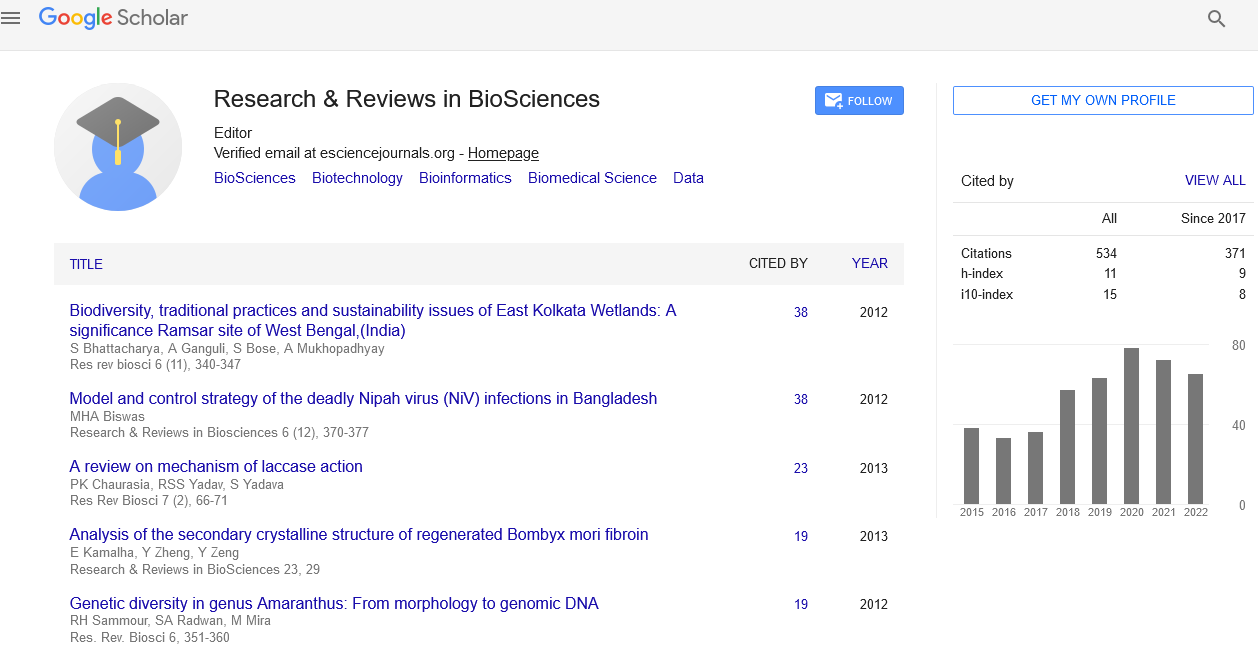Abstract
Homocysteine Levels, Oxidative Status and Hemostatic Response to Chronic Stress in Rats
Author(s): Scoppa HG, Binotti S, Farias M, Stagnoli A, Echegaray N, Bensi N and Niebylski ASeveral studies have shown that homocysteine (Hcy) levels are affected by diet factors and non-diet factors such as stress. Increases in total Hcy plasma concentrations are recognized as an independent risk factor for cardiovascular disease. It has been demonstrated that elevated circulating levels of Hcy cause changes in hemostasis by altering the vascular endothelium function, changing the character of its surface from anticoagulant to pro-coagulant. On the other hand, it has been demonstrated that psychosocial stress increase the plasmatic levels of pro-thrombotic factors. The aim of this study was to evaluate the Hcy levels and oxidative status in the haemostatic response to chronic immobilization stress in rats. Two groups of Male Wistar rats were considered: control group (C) and immobilization stress group (IMO). The rats were stressed for 2 h (from 10.00 AM to 12.00 PM) for 14 days. On day 14 immediately after the last IMO, the animals were killed by decapitation. Blood samples were taken and Clotting time (CT), partial thromboplastin time (APTT), platelet count, fibrinogen, Hcy, thiobarbituric acid reactive substances (TBARs), antioxidant capacity of plasma (FRAP), total nitrites (NOx), and corticosterone levels were determined. Correlation test between Hcy and CT, NOx and Corticosterone were made. An increase in plasma corticosterone, platelet count, and fibrinogen and homocysteine levels in response to stress was observed. FRAP, CT,APTT, and NOx serum values were lower in stressed animals while no significant differences in TBARs plasma concentration to IMO were found. Positive correlation was found between Hcy and corticosterone levels and negative correlation for Hcy and NOx and Hcy and CT was observed. IMO chronic stress modifies the hemostatic response leading to a pro-thrombotic state with an increase of platelets, fibrinogen and Hcy. The rise in Hcy appears to depend on corticosterone levels. Increased Hcy decrease NO bioavailability, which would promote platelet adhesion to endothelial cells favoring the formation of blood clots in response to chronic stress situations, which would increase the risk of thromboembolic events in situations of chronic stress.
